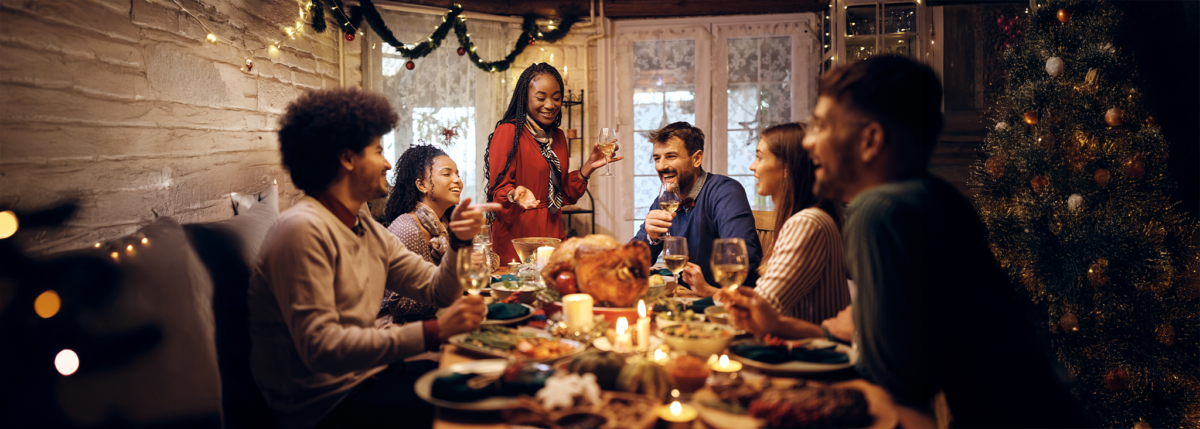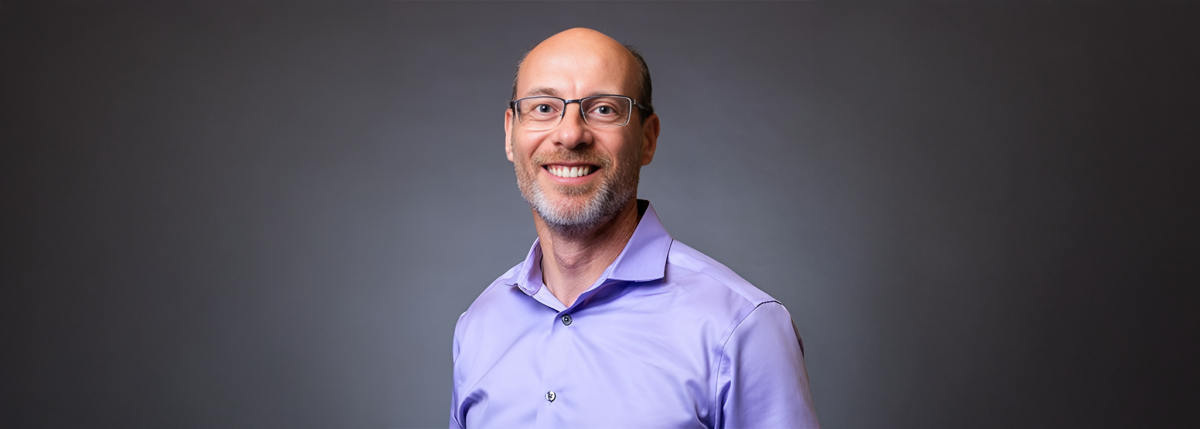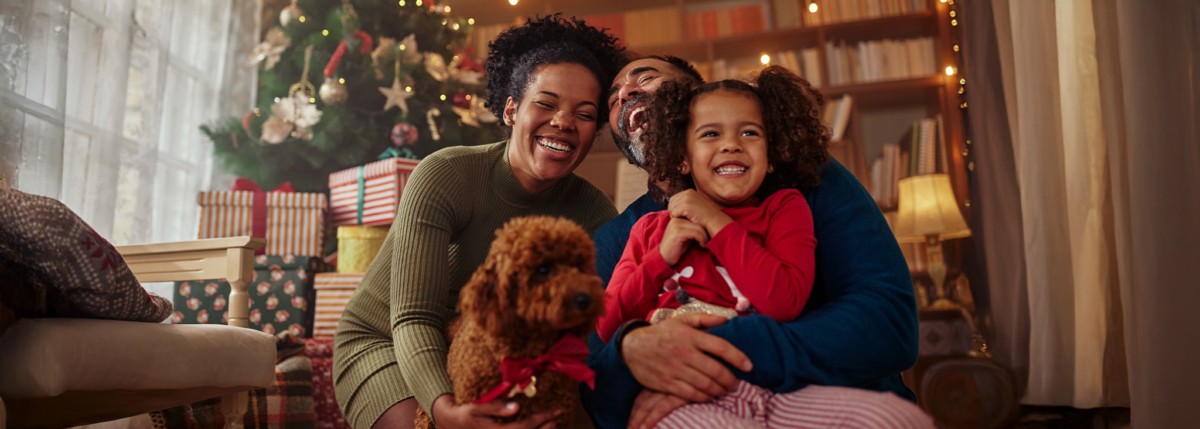Comedian Samara Suomi Embraces Diabetes on Stage
Written by: Alexi Melvin
6 minute read
October 19, 2021
Comedian Samara Suomi always felt pulled toward comedy, but after a type 1 diabetes diagnosis at the age of 16, she was gifted with endless material to draw from. We sat down with Samara to discuss her perspective on life with type 1 diabetes (T1D), how she incorporates diabetes into her comedy shows (like changing her continuous glucose monitor on stage!), and her hopes for the future.
Beyond Type 1: How do you incorporate Type 1 diabetes into your sets?
Samara: I have 15 minutes of material probably that I do on type 1. My jokes are more about how people don’t know anything about it. And it’s fun to shift the perspective.
That’s a thing I love about comedy. You kind of get to take whatever parts of your life affect you in different ways and you can shift the perspective into anything you want. And so I have a lot of fun.
It’s fun to take something that people make fun of anyway. Everybody knows the diabetes jokes. I’ve heard all of that before and sometimes just living life as somebody with type 1, people will say insane things to you and you’re just like, “Oh, people don’t know anything about this.”
I think that’s so funny—you can take something that you were diagnosed with and that sometimes you’ve kind of felt a little bit defined by, but you can literally just switch it and be like, “No, this is how I define it.”
It can be as ridiculous or as real as I want it to be, because it’s something that I live with every day. It’s become so routine to me that it’s fun to talk about because nobody really knows what it is unless you have it.
Have you ever worried at all that T1D would get in the way of performing, or do you just roll with it?
I’ve had a couple of opportunities to do weird shows in town. We’ll do different takes on standup—there was this presentation show; you had to do a fun presentation about a topic. I did mine on diabetes and I actually changed my [continuous glucose monitor] sensor on stage.
I had the FreeStyle Libre at the time and it was super fun to walk people through the steps of stabbing something into your arm. People freaked out when I did it. And it was just like, “I do this every day. This is offensive—why are you grossed out about this?”
It’s also fun to play around with if something were to happen; I haven’t had it happen yet. But if my insulin pump went off while I was performing, I think it’s just a fun way to incorporate that. Like, “Oh my time’s up,” something stupid like that. You can do literally anything.
So it hasn’t really gotten in the way. Honestly, I think it would almost help me if it did. If some kind of technological thing happened while I was on stage, it would be more fun to work with. So I kind of look forward to something happening, but it hasn’t yet.
How did your journey lead you to comedy?
It’s something that I’ve always really wanted to do. I’ve always been a huge fan of comedy. I grew up watching… honestly, it’s really interesting now because of all of the social issues going on and everything. But I grew up with my family, watching Louis C.K. and Bill Cosby. And we watched George Carlin and we watched Joan Rivers.
I grew up watching some of the big-time legends and I just really loved their perspective on life. Obviously, some of them didn’t go on living the best lives. So I have since changed my role models, but I do love comedy. And for me, I haven’t always had the easiest time and the best scenarios thrown at me. But I think my sense of humor has gotten me through most of these chapters in my life.
You perform in Madison, WI. Did you grow up there?
No, I actually grew up in Stevens Point, which is a small town in Wisconsin. I went to college there. I was going to move out of my hometown after college, but because of some issues in my family—well, not really issues, but health problems in my family. I lost my mom. So I decided to stay a little longer than anticipated and I actually just moved to Madison four years ago now.
What was that experience like for you at that age?
It was a rough couple of years. I found out that I had a mood disorder when I was 15, and then got diagnosed with diabetes at 16, and then my mom died at 18. Those three years were kind of rough.
And so [my diagnosis] just blended in. I didn’t really understand how serious it was or comprehend how much it was going to impact my life until a little bit later on… It didn’t really seem as serious as I later processed. Then I was like, “Oh yeah, this isn’t going away.”
What happened when you began to really process the reality of your diagnosis?
Now as an adult (and having to navigate the health insurance system) it has become way more relevant in my life. I kind of miss the days of being distracted by other problems. It’s such a weird thing to live with every day. At that age [when I was diagnosed] you don’t really understand anything that’s going on. Everything just kind of is awful all the time when you’re a teenager in one way or another, everything seems so big. All the things that don’t matter seem to matter more.
Did you get involved in the diabetes community at all after your diagnosis?
I didn’t really get involved much. My hometown, the doctors there, were not the best. I didn’t get an insulin pump or a Dexcom or any kind of technology until I moved to Madison. My hometown doctors told me my lifestyle didn’t match the needs of a pump, and they didn’t think I would benefit from it.
Editor’s Note: Healthcare providers are still learning about diabetes technology too. Sometimes, they don’t recommend technology like insulin pumps or continuous glucose monitors, even when they would be beneficial to your blood sugar control or general quality of life. Do your research to see what may be best for you; if your healthcare provider is not open to working with you on what you feel would be best for your health, find one who will.
I didn’t really know anything about having type 1. So, I didn’t really feel like a part of [the diabetes community] because I didn’t really feel like I was educated on it until I moved to a different city and learned the benefits of all these technologies. I’m still not super involved in the community as far as groups or donations or anything like that, but I am aware of those things more than I was before. It is very cool knowing what’s out there and that there are a lot more groups and communities forming.
How does your sense of humor and comedy make things a bit easier for you?
It’s kind of become a coping mechanism. It’s how I deal with stuff. I’ve always been one to try to lighten the mood and laugh at whatever is happening, regardless if I should or not.
When I moved to Madison, I was in a totally different situation than I am now. I moved with this guy who ended up cheating on me and left me in Madison all by myself. And I had decided before I even moved that I wanted to move to Madison to pursue more comedy because there were no open mics in my hometown.
Where did your motivation come from after you were left alone?
I was like “Okay, I have no friends here. I don’t know anybody. The only support system I had just left. I have literally nothing. What is stopping me from trying? What’s the worst that’s going to happen if I go on stage? Nobody knows who I am, I’ll just never do it again.”
I went up with some jokes that I had written over the year or so that I was trying to work up the courage to start. The very first open mic I did was at the comedy club here on State Street. The open mic here draws over a hundred people. It’s really an unrealistic glimpse into what an open mic is. It’s very glamorous and most open mics are not glamorous.
I decided I wanted to just try to go big and do my first mic at the biggest stage I could. Because like I said, I had nothing to lose and then I just did it. I didn’t do well, I didn’t do bad, I did all right. But I was, “I’m hooked I like can’t stop.”
The next open mic I did was a local mic at a coffee shop with 10 people versus the 200 people I just performed in front of the day before. I was like, “Oh, I love all aspects of this. I love the no audience, I love the big audience, I just love telling my perspective for a given amount of time and people relating to it.”
It’s such a cool performance art that I’m just kind of addicted to. And I didn’t expect to get so into it. I always knew I wanted to do it and I wanted to try, but now that I’m actively trying and some cool things have happened, it’s just like “Oh this is perfect; so much more than I wanted it to be.”
What are your plans for your career going forward?
I have a lot of hopes for comedy as far as goals with performing especially in this world with technology. And it seems like some people, whether it’s they get discovered off of social media or something, there’s always something happening to somebody. I never want to bank on anything like that happening. I guess my goals are just to kind of keep doing what I’m doing and always enjoy it.
Whether my comedy takes off and I make money off of it and can quit all the jobs that seem mundane or whether I have to work a nine to five the rest of my life and just do comedy on the side… either way, as long as comedy is involved, that’s about it.
Right now, I’m just trying to figure out what will make me happy. I don’t know. I’m just kind of comfortable where I’m at. Maybe not career-wise. I wish I had better jobs. I wish I had a salary or something, but those are things that can come over time. But I guess right now, what I hope to do is just what I’m doing, but hopefully get paid a little bit more.
What would be the ultimate goal?
My ultimate goal is to be a voice actor and help draw an animated cartoon. But if that doesn’t happen, as long as I have what I have right now, I’m fine.
It’s a lot of fun. I can’t complain. I’m just happy that I’ve found the community I did and the friends that I did and the connections that I’ve made.
Check out Samara’s comedy here.

Author
Alexi Melvin
Alexi Melvin serves as chair of the Leadership Council’s Content Committee. She is a journalist who has written for The San Francisco Chronicle, Beyond Type 1 and other digital publications. Alexi is also a voiceover actor and reiki master. In addition to her dedication to being a voice for people living with type 1 diabetes (T1D) everywhere, she has always been passionate about meditation and energy healing. Before getting her Bachelor of Arts degree at The New School University, she studied acting at the Lee Strasberg Institute. She hopes to continue her healing work, and to connect with other T1Ds through her travels and writing opportunities.
Related Resources

The holiday season is filled with celebrations, family gatherings, and plenty of holiday foods. No...
Read more

Managing diabetes is a complex and often overwhelming journey—even nine years after my daughter's diagnosis....
Read more

The holiday season is all about celebration, family, and joy—with a little chaos sprinkled in...
Read more

